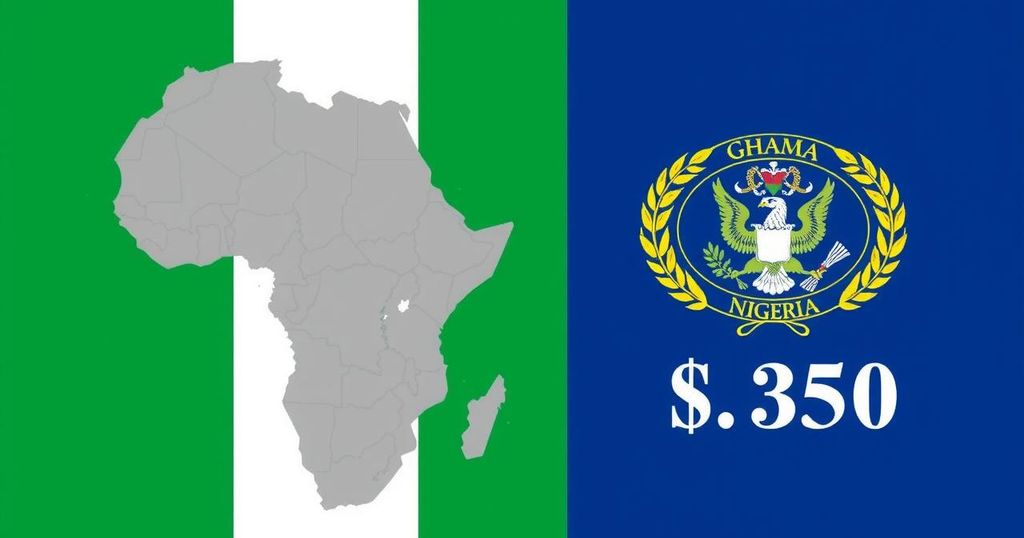US Visa Overstay Report: Ghana Surpasses Nigeria in 2023
A recent U.S. government report reveals that Ghana has overtaken Nigeria in terms of visa overstays, with Ghanaians demonstrating higher abuse rates for B1/B2 and F, M, and J non-immigrant visas in 2023. Specifically, Ghana reported a 7.50% overstay rate for B1/B2 visas and 21% for student visas, compared to Nigeria’s respective rates of 7.14% and 15.60%. Historical context shows that Ghanaians previously had better compliance ahead of the pandemic, indicating a concerning trend that may require further scrutiny and policy adjustments.
The latest United States government report for 2023, focusing on visa overstays, reveals that Ghana has surpassed Nigeria in the misuse of B1/B2 and F, M, and J non-immigrant visas from October 2022 to September 2023. The report highlights the overstay rates, which denote those who remained in the U.S. without valid evidence of departure, visa extension, or change in immigration status. As of the end of the fiscal year 2023, there were 510,363 suspected in-country overstays, equivalent to 1.31% of anticipated departures, and 54,792 out-of-country overstays, representing 0.14% of expected departures. In the case of B1/B2 visas, Ghana was issued 25,454 visas, with 1,910 individuals overstaying, resulting in a 7.50% abuse rate. Additionally, for F, M, and J visas, 2,559 were issued to Ghanaians, with an abuse rate of 21%. Comparatively, Nigeria had 84,051 B1/B2 visas issued, with 6,000 overstaying, leading to a slightly lower abuse rate of 7.14%. Moreover, for student visas, 7,556 were issued in Nigeria, with 1,179 overstays representing 15.60%, which is lower than Ghana’s 21% rate in the same category. Historically, Ghanaians had a better track record with U.S. visas before the pandemic, which is noteworthy when examining the 2019 pre-pandemic statistics. For that year, Ghanaians received 28,844 B1/B2 visas with an overstay rate of 5.09%, compared to Nigeria’s 9.88% overstay rate for the same visa category. Other countries in Africa also displayed varying overstay rates, with Mali at 5.27%, Ivory Coast at 7.48%, and Togo at 19% in 2023. The classification of overstays involves two types: suspected in-country overstays, where individuals have no recorded departure, and out-of-country overstays, where individuals remained after their authorized admission expired. Accurately determining an individual’s lawful status is critical, as it may involve various extensions and adjustments that can complicate straightforward entry-exit checks. Improvements in data analysis aim to more effectively capture these nuances, ensuring a better understanding of visa compliance. In summary, the report signifies a shift in visa overstay patterns, showcasing Ghana’s ascent in the rankings and presenting a concerning trend in visa management and compliance, particularly in the key categories of business and student visas; the implications for both nations emphasize a need for vigilance in monitoring immigration practices and trends in visa usage.
The analysis of U.S. visa overstays plays a crucial role in evaluating immigration compliance and trends among various countries. This specific report compares the overstay rates between Ghana and Nigeria, two significant countries involved in U.S. visa applications, particularly for business, pleasure, and education. With a focus on non-immigrant visa categories, such as B1/B2 for business and pleasure and F, M, and J for students and exchange visitors, the study sheds light on how these rates have evolved, influenced by historical data and global events like the pandemic. Understanding these rates informs policymakers on immigration policies and the effectiveness of visa management systems.
The 2023 report issued by the U.S. government indicates a notable development in the overstay metrics of Ghanaians and Nigerians, with Ghana now leading in visa abuses for key non-immigrant categories. As the percentage of Ghanaians overstaying visas increases, it prompts a reevaluation of visa regulations and monitoring to prevent future infractions. The shift in overstay patterns underscores the necessity for continual assessment of visa policies to ensure compliance and the effective management of international visitors, particularly for educational and business purposes.
Original Source: www.ghanaweb.com




Post Comment